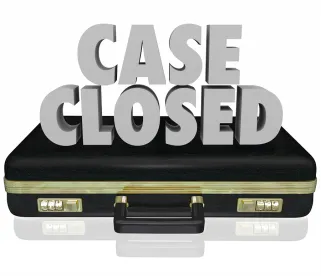A January 12, 2021 US Department of Justice (DOJ) memorandum extends and provides additional legal analysis to support the government’s increasing drumbeat against settling cases and reducing environmental penalties in recognition of Supplemental Environmental Projects or “SEPs.” The new memo addresses the limited circumstances under which attorneys in DOJ’s Environment and Natural Resources Division (ENRD), the division of DOJ that represents EPA and other federal agencies in enforcing environmental laws, may include certain mitigation requirements in settlement agreements. Issued last week by ENRD Assistant Attorney General Jeffrey Bossert Clark on the same day that he announced his departure from the Department, the memo bolsters the previously provided rationale for ENRD’s policy prohibiting SEPs in settlement agreements. It also distinguishes SEPs from “equitable mitigation,” which the memo defines more narrowly and considers to be both permissible and appropriate. The memo also lists criteria to guide ENRD attorneys evaluating whether equitable mitigation measures are appropriate in a given civil enforcement case.
Equitable mitigation is a tool ENRD attorneys employ seeking courts to require alleged violators to remedy environmental harms from the violation. SEPs, by contrast, are an enforcement tool allowing alleged violators to offset some potential penalties by voluntarily agreeing to undertake an environmentally beneficial project that may bear a less direct relation to the subject enforcement, though there has always been a requirement for a nexus between the SEP and the alleged violation. SEPs have generally been popular with alleged violators, as well as with communities that often benefited from the resulting benefits of those projects.
Under the Trump Administration, the DOJ generally eschewed such measures. A series of memos curbing their use began in 2017, under then-Attorney General Jeff Sessions, with a memo prohibiting settlement payments to third parties. Another memo issued by Assistant Attorney General Clark on March 12, 2020, extended that third party payment prohibition to ENRD and expressly barred the use of SEPs in civil settlements with private defendants. Last week’s memo provides further legal basis aimed at cementing the SEP prohibition, while also ensuring that equitable mitigation is consistent with Congressional intent.
Like its predecessors, the memo reasons that SEPs exceed courts’ equitable authority and instead become penalties—ones not authorized by Congress, at that—because they “do not remedy the specific harm at issue in the case, but rather purport to benefit the environment in a more general way, typically in exchange for a reduction in monetary penalties.” Equitable mitigation, on the other hand, is an acceptable enforcement tool because it is “closely tailored to restore (in whole or in part) the status quo ante,” remedying the harm done by the violation. The memo reasons that this is because the authority to require equitable mitigation is based in courts’ authority under various federal environmental laws to award appropriate relief, in conjunction with courts’ general authority to confer equitable relief except when expressly precluded. That authority is “not a blank check,” the memo explains, implying that SEPs effectively transform that authority into one that Congress did not intend to grant.
The line-drawing exercise of distinguishing acceptable equitable mitigation from unauthorized SEPs in practice can be challenging, the memo acknowledges. For example, the memo explains how depending on the circumstances, a particular project to address Clean Air Act violations—say, to reduce NOx emissions from a facility—could be acceptable as mitigation—if the underlying violation was based on excess NOx emissions—or it could be an illegal SEP—if the violation involved wrongful emissions of other pollutants with different impacts. Thus, to aid ENRD attorneys in determining whether equitable mitigation is appropriate in a particular settlement, the memo presents a slate of factors to be considered.
These “auxiliary precautions” that ENRD attorneys are instructed to consider include:
-
Whether the specific legal basis supports mitigation. The Division is directed to make this assessment by evaluating if the mitigation: (1) “would confer maximum environmental benefit,” (2) is “achievable as a practical matter,” and (3) bears “an equitable relationship to the degree and kind of wrong it is intended to remedy”;
-
Whether the mitigation shares a close geographic connection to the alleged violation and is aimed at addressing the environmental harm from the violation;
-
The costs of a potential mitigation project in relation to the benefits; and
-
Prioritizing imposition of monetary penalties where possible, and reserving mitigation relief for appropriate situations.
The timing of the memo, issued on the eve of Assistant Attorney General Clark’s departure from DOJ and just one week before the incoming Biden Administration assumes DOJ leadership, is unlikely accidental, which has the potential to limit its longevity. When the Biden-Harris Administration takes office and has its leadership in both DOJ and EPA in place, a resumption of the use of SEPs as settlement tools is likely to be on the agenda. Even so, the future ENRD leadership will need to contend with the rationale presented in last week’s memo and articulate reasons for withdrawing or amending the policy.
Regulated entities, and particularly those facing potential enforcement, should keep abreast of future developments relating to SEPs and equitable mitigation in environmental enforcement.









 />i
/>i

